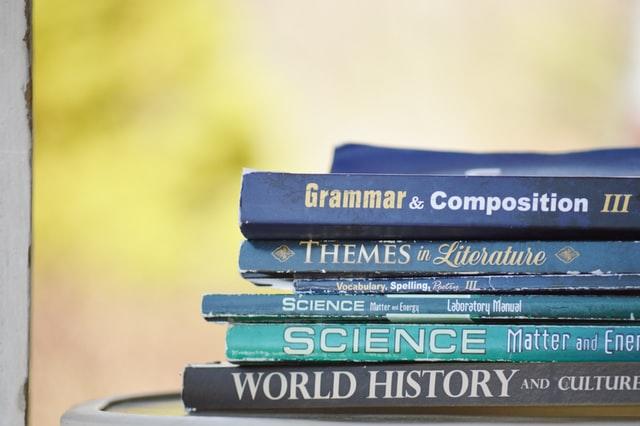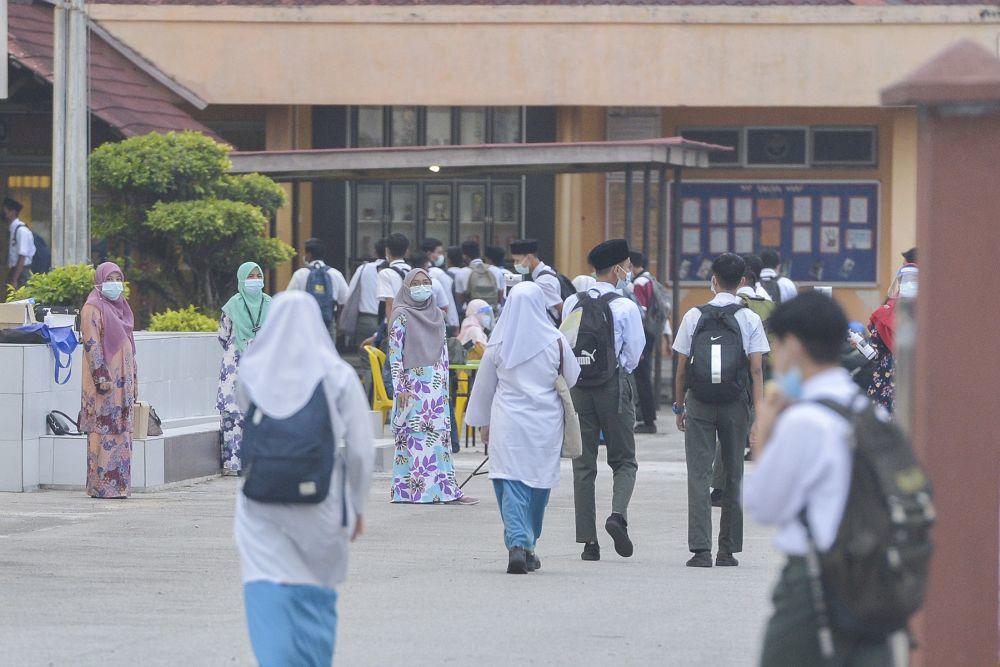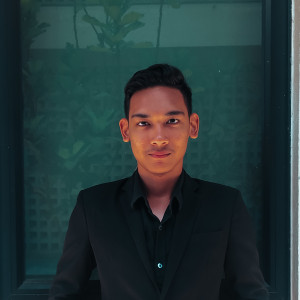If you are a parent of a Malaysian teenager who is approaching 16 or 17 years of age, you would certainly need to buckle up for a wild year ahead.
One moment, you could be a driver who religiously picks your children from their schools to tuition centres.
In another moment, you could be wiping away their tears and giving them a pad on their back when they are ranting about their examination stress.
Please bear with them, because they are gearing for the Sijil Pelajaran Malaysia (SPM) or the International General Certificate of Secondary Education (IGCSE), two of the most important secondary level examinations in the country.
In this article, we will be discussing the relevance of SPM, its grading system and the flexibility it offers to students after completing their secondary level education in Malaysia.

SPM vs IGCSE, Which Should You Take?
Since we have briefly mentioned about IGCSE in the introduction, let's talk about how the IGCSE examination system differs from the SPM for Malaysian secondary level students.
a) Local public secondary schools vs International schools
Firstly, SPM is a government-administered public school examination. It is a national examination that is taken by all Form Five students (1 7 years old) before they graduate from public secondary schools. The exam questions are set by the Malaysian Examinations Board.
On the other hand, the IGCSE is sat by Malaysian students who are studying at local international schools. Students can choose to take this examination at the end of Year 10 (15 to 16 years old) or Year 11 (16 to 17 years old), depending on when they start and complete the syllabus for the taught subjects. It is an English based private examination that is monitored by the Cambridge Assessment International Education.
b) Local public universities vs Local private higher learning institutions and overseas universities
Secondly, these two examination systems differ in terms of the education pathways after their completion.
The SPM qualification is eligible for local public universities, private universities and colleges as well as overseas universities. You can also continue your Form Six studies and take the STPM exams with your SPM certificate.
If you choose to take the IGCSE, you can only apply for foundation programmes at local private universities and overseas universities. It is not recognized by the public universities in Malaysia.

Photo by Sigmund on Unsplash
c) Budget-friendly vs High-cost secondary school level qualification
Last but not the least, we can't avoid money talks.
Let's be honest, education can cost a lot even before one becomes a university student in Malaysia.
Statistics revealed that a total of 401,105 candidates registered for SPM 2020. Many parents still prefer to send their students to public schools to complete their secondary education to get the cheapest leaving education qualification in Malaysia! That's because you don't have to pay a single cent to study and sit for SPM as long as you're studying in a public secondary school.
That's not the case for IGCSE exams. Granted that you are attending an international school, the expenses of schooling is bound to soar high. To register for the test, each subject can cost from RM700 to RM800. If you plan to take at least 7 subjects, the amount can go up to RM6000.
You can do the math.
Who Can Register For SPM?
We assure you that Form Five students are not the only ones who can sit for SPM.
Remember when this 65 year old man made the headline when he registered as a private candidate for SPM?
- Current Form Five students who are studying at public secondary schools in Malaysia
Students will register for the subjects according to their designated streams (Science, Commerce, Art) with the assistance of their form teacher.
- Private candidates
There are two groups of candidates under this category. The first group are students who have previously sat for SPM but choose to resit selected subjects (Malay, Maths, History) to improve their grades.
The second group are students who are not studying in public schools (homeschooling/ senior students). For first time private candidates, they are required to register for the six compulsory subjects for SPM.
Private candidates can register for SPM via this link.
Continue reading to know what are the six compulsory subjects for SPM.

What Are The Subjects Covered For SPM?
All subjects are taught and tested in Malay (except foreign languages) unless stated. Here are the complete subject lists that are available for SPM, according to different fields.
Compulsory subjects
- 1103 Malay Language
- 1119 English Language
- 1223 Islamic Education [Taken by Muslim students]
- 1225 Moral Education [Taken by non-Muslim students]
- 1249 History
- 1449 Mathematics [Billingual]
- 1511 Science [Taken by students from Commerce and Art stream]
Arts and Health
- 2611 Visual Arts Education
- 2621 Music Education
- 4572 Sports Science
Economics and Business
- 3754 Entrepreneurial Studies
- 3766 Business
- 3756 Principles of Accounting
- 3767 Economics
Language and Literature
- 2205 Literature in English
- 2215 Malay Literature
- 2361 Arabic Language
- 6351 Chinese Language
- 6354 Tamil Language Tamil
- 6356 Iban Language Iban
- 6357 Kadazandusun Language
- 6358 Semai Language
- 6401 Japanese Language
- 6405 German Language
- 6406 Korean Language
- 6407 Communicative Chinese
- 9216 Chinese Literature
- 9217 Tamil Literature
- 9303 French Language
- 9378 Punjabi Language

Photo by Clarissa Watson on Unsplash
Science and Mathematics
- 3472 Additional Mathematics [Taken by students from Science stream, taught bilingual]
- 4531 Physics [Taken by students from Science stream, taught bilingual]
- 4541 Chemistry [Taken by students from Science stream, taught bilingual]
- 4551 Biology [Taken by students from Science stream, taught bilingual]
- 4561 Additional Science
Social Sciences and Religion
- 2280 Geography
- 5226 Islamic Worldviews
- 5228 Quran and Sunnah Studies
- 5228 Islamic Law Studies
- 5301 Quran Recitation [Taught in Arabic]
- 5302 Quran Skills [Taught in Arabic]
- 5303 Quran and Sunnah Classics [Taught in Arabic]
- 5304 Islamic Studies Classics [Taught in Arabic]
- 5305 Arabic Language Classics [Taught in Arabic]
- 5401 Foundational Islamic Theology [Taught in Arabic]
- 5402 Islamic Law [Taught in Arabic]
- 5403 Arabic Language [Taught in Arabic]
- 5404 Islamic Logic [Taught in Arabic]
- 5405 Arabic Literature and Rhetorics [Taught in Arabic]
- 9221 Bible Knowledge
Technical and Vocational
- 3729 Agricultural Science
- 3759 Engineering Drawing
- 3760 Mechanical Engineering Studies
- 3761 Civil Engineering Studies
- 3762 Electrical and Electronic Engineering Studies
- 3763 Invention
- 3768 Basics of Sustainability
- 3769 Home Science
- 3770 Computer Science
- 3771 Technical Communication Graphics
- 7101 Domestic Construction
- 7102 Furniture Making
- 7103 Domestic Plumbing
- 7104 Domestic Wiring
- 7105 Arc and Gas Welding
- 7106 Automobile Servicing
- 7107 Motorcycle Servicing
- 7108 Air-Conditioning Servicing
- 7109 Domestic Electrical Appliances Servicing
- 7201 Design and Tailoring
- 7202 Catering Service
- 7203 Food Processing
- 7204 Facial and Hair Care
- 7205 Early Childhood Education
- 7206 Geriatric Services
- 7301 Nursery and Landscape
- 7302 Aquaculture and Pets
- 7303 Food and Crop Cultivation
- 7401 Signage Design
- 7402 Interior Design
- 7403 Multimedia Production
- 7404 Digital Graphic Design
Find out more about the vocational studies and SVM exams in Malaysia.
How Are The SPM Candidates Evaluated?
Starting in 2009, SPM has adopted a new grading system. You can see the complete updated grades in the table below.
| Grade | Mark Range | Remarks | Grade Value |
|---|---|---|---|
| A+ | 90-100 | Cemerlang Tertinggi | 0 |
| A | 80-89 | Cemerlang Tinggi | 1 |
| A- | 75-79 | Cemerlang | 2 |
| B+ | 70-74 | Kepujian Tertinggi | 3 |
| B | 66-69 | Kepujian Tinggi | 4 |
| C+ | 60-65 | Kepujian Atas | 5 |
| C | 50-59 | Kepujian | 6 |
| D | 46-49 | Lulus Atas | 7 |
| E | 40-45 | Lulus | 8 |
| G | 0-39 | Gagal | 9 |
Discover the latest updates on the PBD assessments for lower secondary schools in Malaysia.
What Are The Education Pathways In Malaysia That Students Can Take After Completing Their SPM?
Let's switch perspectives now.
If you're a fresh SPM graduate, you may wonder what's the next step to take for your pre-university programme locally once your results are released. For your information, you can't enter a degree programme with your SPM.
You can refer to the list below to understand the SPM entry requirement for each programme.
Public /Private Schools/ Matriculation Colleges
- Form Six Studies In Public Schools
Students need to secure a C for SPM Malay Language and pass their Sejarah paper.
- Local matriculation
The minimum requirement for local matriculation is 5 credits. The more As you have, the higher chance you'll have.
One important note: Entry to this programme is based on race quota, 90% of selected students are Bumiputeras (Malays and natives from Sabah and Sarawak) whereas 10% will be selected from non-Bumiputeras. Don't worry, if you are not accepted to this programme, you will automatically be offered a place to study Form Six.
- Continue to take UEC In Chinese Independent High Schools
If you are currently a student who is studying in a Chinese independent high school like Foon Yew High School, you can sit for the UEC (equivalent to STPM and A-Level) after completing your SPM.
Private Higher Learning Institutions
- Foundation programme
To enter a foundation programme, you need at least 5 credits in your SPM exams.
- Diploma programme
For Diploma, you need at least 3 credits for your SPM exams.
- A-Levels, South Australian Matriculation (SAM)/ Australian Matriculation (AUSMAT)
You need 5 credits for your SPM studies. Most universities require you to have a credit in English and certain Science subjects if you intend to take Science related subjects.
Can You Study Overseas With A SPM Qualification?
The answer is YES!
We got you covered for the important information to achieve your goal to study overseas after completing your SPM.
Here are two important points to take note of.
a) Look up the academic entry requirement for the foundation programmes that you want to apply
Before the actual SPM exams, you should start equipping yourself to ace the subjects that you have registered. The standard entry requirement is 5 credits, but it's always better to aim for the best score.
If you feel that you need extra guidance on certain subjects, you can hire experienced tutors from Superprof! Learning has never been so easy where you can find tutors for various subjects with just a few clicks. All you need to do is just head to the Superprof Malaysia homepage and start browsing for a tutor that matches your personal preference in terms of:
- Teaching qualification
- Teaching experience
- Hourly rate
- Teaching methodology

Photo by Barney Yau on Unsplash
b) Take the relevant language proficiency test (English/Other foreign languages)
Depending on the countries that you plan to further study, it's important to make sure you have some basic knowledge of the medium of instruction (such as English, Chinese, Japanese, German, and Korean) that will be used during their lessons. Get that certificate before the application!
Learn how the UPBA can help you to gain a foreign language proficiency at SPM level.
We know how overwhelming it can be to prepare for one of the most important exams in your life. Give your best shot and leave no regrets! You got this!
Summarise with AI:










hi,
i have a situation here , not sure if you are kind to share ur opinion.
My child completed GCE O level in Brunei. In order for him to enrol wz public institutions such as UITM, ITM and uni, he is required to have SPM.
what is the best way to get around this situation?
Thanks
Ai Lee